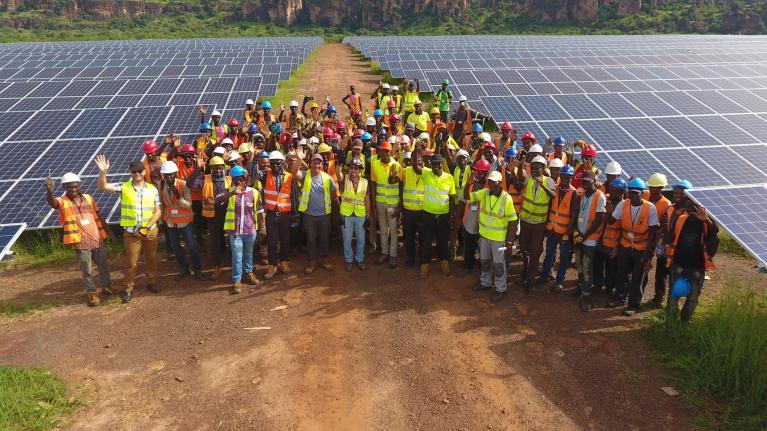Mali’s Kita solar plant: A beacon for renewable energy and carbon reduction

Spanning 100 hectares and featuring 187,000 solar panels, the Kita Solar Plant has become a landmark for renewable energy in Mali.
Capable of delivering 50 MWc of power, this solar installation prevents 52,000 tonnes of CO2 emissions each year, aligning Mali with its national renewable energy goals for 2030 and reducing its reliance on hydroelectricity.
The plant, constructed by French independent power producer Akuo Energy, exemplifies the government’s push toward energy transition.
Since its first kilowatt-hours entered the national grid in March 2020, the facility has had the capacity to power approximately 120,000 households, contributing significantly to Mali’s overall electrification rate—an essential metric for economic and social progress.
Akuo Energy stated, “The solar plant actively boosts Mali’s electrification rate, a critical parameter for development,” and affirmed the plant’s role in advancing the nation’s renewable energy agenda.
Founded in October 2014, Mali’s Renewable Energy Agency (AER-Mali) drives the country’s transition to renewable energy.
Established under Ordinance n°2014-012/P-RM, AER-Mali supports large-scale renewable energy adoption, assesses the nation’s renewable energy potential, and shapes national strategy.
The agency also works with state entities, local communities, and the private sector to implement research and development initiatives, ensure quality control, and certify renewable equipment.
It is actively involved in capacity building for local stakeholders and engages in international cooperation.
The agency’s objectives align with Mali’s broader ambition to become a model in clean energy production, particularly through public-private partnerships (PPP) that mobilize sustainable funding mechanisms.
These partnerships underpin large-scale projects, such as Kita’s solar installation, which not only reduces reliance on fossil fuel imports but also minimizes the use of natural forests for fuel.
Constructed by a predominantly African workforce and currently operated by an entirely Malian team, the Kita Solar Plant reinforces the benefits of local empowerment and capacity building.
Amid challenging national conditions, the project’s success underscores Mali’s commitment to combating climate change, particularly as a signatory of the Kyoto Protocol since 1995.
As Mali’s renewable landscape expands, additional solar and renewable investments aim to achieve the country’s long-term vision of energy independence and sustainability.
About The Author
dailymailafric
I am an avid African news observer, and an active member of Daily Mail Africa.
I’m Passionate about staying informed on diverse topics across the continent,
I actively contribute to publishing on political, economic and cultural developments in Africa.



